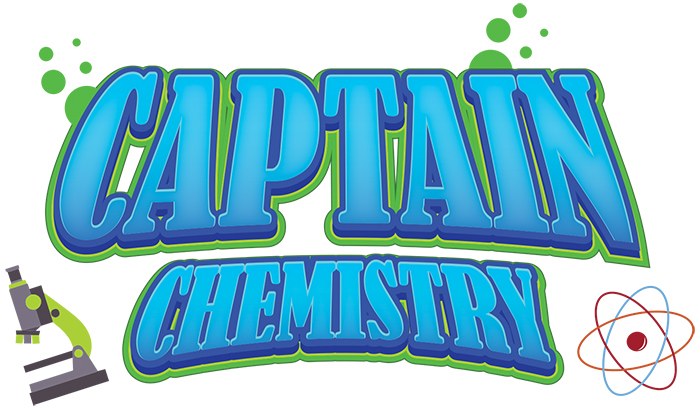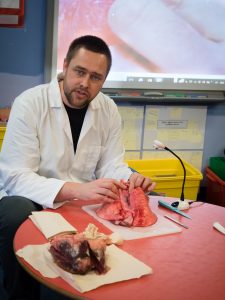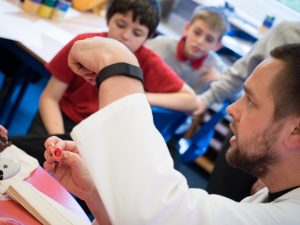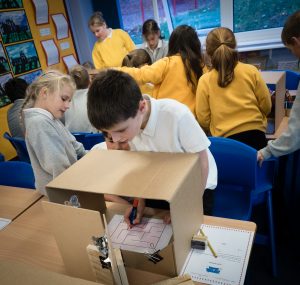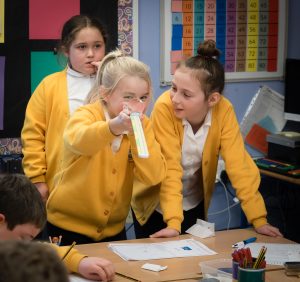KS2 Workshops
Forces
A fantastic opportunity to get practical and carry out some investigations! Students have the opportunity to construct their own parachutes and experiment to see what affects how fast they fall. Next we look at how shapes and surface material affect how easily objects move through air and water. Students get to build and test their own rockets and sailing boats! Finally we investigate how understanding forces can make life easier with some practical work on levers and pulleys.
Memorable moments:
Launch a rocket!
Build a sailing boat!
Solutions
Chemistry is where the Captain comes into his own! Students investigate a range of materials by looking at their physical properties. Next we carry out experiments to see what happens when substances dissolve and how we can recover dissolved materials from solutions. Finally students carry out a series of chemical reactions and interpret the results.
Memorable moments:
Use real chemistry equipment!
See how distillation works!
Evolution
Although the Captain is a chemist by trade, the Theory of Evolution is his favourite theory… Ever! In this workshop students will examine and describe a selection of fossils, investigate how fossils are made and have a go at making their own. The study of fossils leads into an investigation into variation in humans. Finally students will carry out practical work to determine how variation can lead to changes in species over time – evolution.
Memorable moments:
Make a fossil!
Compete to collect insects!
The body
Not for the faint hearted! This workshop starts off by learning how the circulatory system works and why we need one. A heart and lung dissection provides an exciting and memorable opportunity to look more closely at how these amazing organs work. Students will also carry out investigations to see how different activities affect the way the circulatory system works.
Memorable moments:
See a heart and lung dissection!
Listen to your own heart!
Light
This workshop starts off with a tricky mirror drawing task which really gets your brain working! Students can then use what they’ve learned about mirrors to construct and use their own periscope. Next students will experiment with light to see what affects the size and appearance of shadows. This workshop goes on to extend the curriculum by looking at how telescopes work and showing students how they can make a telescope. Finally students investigate how light and sound compare when used to carry information – a great link to information technology and earlier work on sound.
Memorable moments:
Build a telescope!
Send a coded message!
The Solar System
The Solar System provides excellent links to numeracy which are explored by demonstrating the scale of the Solar System and the comparative size of the planets. Students construct a ‘human model’ to show how the Sun, Earth and Moon interact and extend the curriculum here by introducing the phases of the Moon. Next students get to see how an astronomical telescope works and examine photographs taken from Earth of some of the other planets in the Solar System. Finally students work in teams to plan an expedition to another planet.
Memorable moments:
See a real telescope in action!
Plan a mission to Mars!
Electricity
The electricity workshop can be tailored to either Year 4 or Year 6. In these workshops students will use high quality electricity apparatus to learn how circuits are constructed and some of the ways they can be manipulated. Students will learn how to use circuit symbols correctly to represent the circuits they have made and why we draw circuits in this way. Next students can carry out investigations to see how changing a circuit affects the way various components behave. Finally students investigate how fruit and vegetables can be used to generate electricity!
Memorable moments:
Use real physics equipment!
Make electricity with a lemon!
Sound
Not the quietest of days! Students investigate different materials to see what sounds they can make and how they differ. They then investigate how to change pitch and volume of sound and learn how to use these key words appropriately. Next we look at how sound travels from its source to our ears. Finally we experiment with string telephones to see how they work and carry out a comparison between digital and analogue sounds as a way to send information – great links here to information technology.
Memorable moments:
Make your own telephone!
See how sound travels!
Food and the Digestive System – this will need adding in here.
Students start off by learning about the components of a healthy diet and why this is necessary. Next we find out how our teeth work and why we have different types. The highlight of this workshop is the Poo Tube! A demonstration shows how the digestive system works and what the different parts of it do, including how we end up with… a-hem… ‘waste’. Students relate what they have learned to the idea of food chains and the movement of energy between organisms. They even get to create their own animals to complete a food chain!
Memorable moments:
See how poo is made!
Create your own animal!
